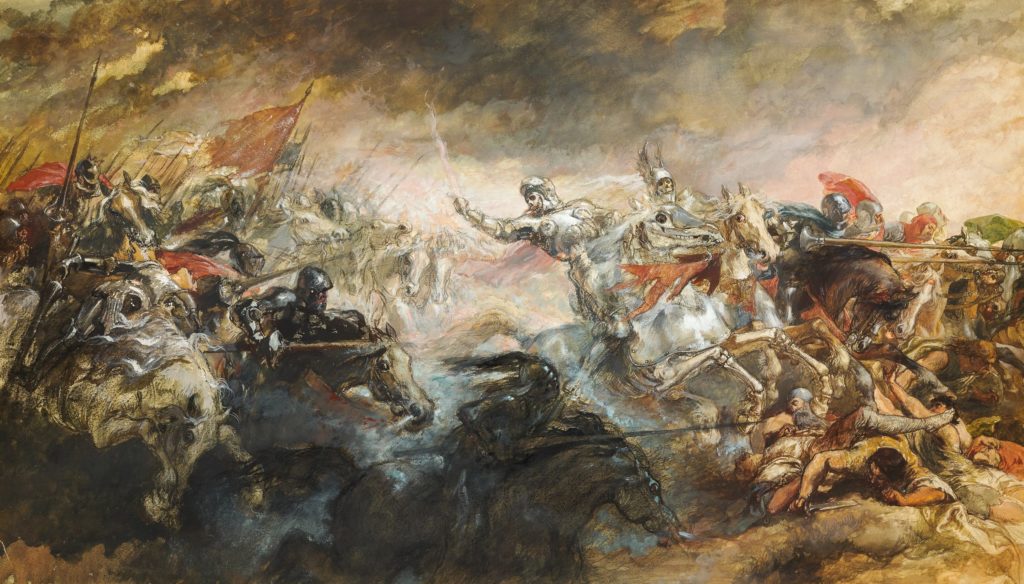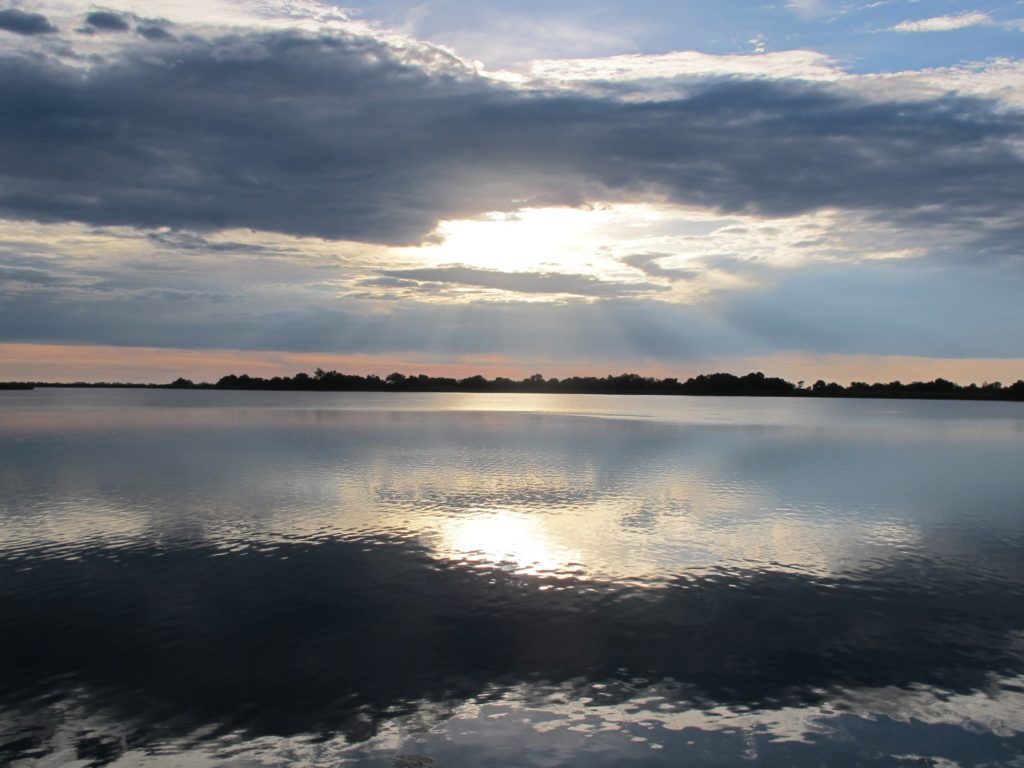A Story about a Better Future

The history of mankind is full of struggle, with many dark times and seemingly endless battles for survival. There have also been times, although perhaps not many, when the gods have smiled on us, and we have seen sunny uplands stretching into the future.
Our natures though, seem to thrive on difficulties and challenge, and we can be at our best and most productive in extremely testing periods. In our search for progress and a better life we have fought constant wars against tyranny, battled ignorance and religious hatred, and sought more equal methods of government. It was never all well-intentioned of course, but from time to time, in many parts of the world, we have seemed to reach a plateau of calm allowing us to move on to another level.
Perhaps the period after the Second World War was such a time. A time of relative peace where we settled down and began to rebuild our lives. But then came Capitalism. Our appetites for more and bigger possessions seemed boundless and we forgot that we lived on a finite planet. Or if we didn’t forget, we didn’t care.
Such was the case at the beginning of the twenty-second century where we had lost our connection with nature and were overcome by the effects of our own greed and selfishness. It was a time of existential threat to our civilisation. Looking back now from near the end of the century it is hard to imagine how mankind survived.
We were faced with a climate emergency, rapidly decreasing biodiversity and extinction of species, pollution of the oceans and atmosphere, destruction of the soil and its ability to produce the food we needed, and all the other issues caused by the lifestyle people were living under Capitalism. Issues such as inequality, racism, loneliness, hunger, obesity, debt, the destruction of hard-won Democracy and the rising power of multinational companies and of right-wing politics. These problems were interconnected and as with a ball of wool left by a playful kitten, incredibly hard to untangle.
And yet, here we are more than sixty years later looking into the future with enthusiasm, hope and a belief that we can finally see the light at the end of the tunnel. Certainly, we have residual and on-going problems to solve. The planet itself is more unstable than before. The temperature is hotter generally and the weather unpredictable, but there is a feeling that life is better, and most people are happier and more contented than for many years.
Somehow, we got over the hump of disbelief and doubt that we had before: the feeling that we as individuals were helpless and could do nothing against the forces of darkness that were gathering against us. We succeeded, of course, because we stood together, and we acted as one.
Even now we ask ourselves “How did we finally move on?” What made us overcome our despair and inertia?
At that time there were many incredible individuals working in their own ways to create change. Activists, film makers and young people stepped up and many thousands of others protested and faced prison or worse. There were charities, company leaders, scientists, technologists and communities leading the way and keeping hope alive, although barely. Nevertheless, it needed a critical mass of citizens to finally give the politicians the courage to act.
Little by little society became more involved. The climate-deniers disappeared into the woodwork as it became ever more obvious we were in trouble. The forest fires and floods and droughts intensified as it became hotter and wetter. Our in-boxes were filled with increasingly desperate cries for help from charities and environmental organisations. The news became worse and more frightening on a daily basis, and political shenanigans escalated, nullifying our belief that somebody else “out there” would save us.
We realised that our politicians were failing us. They either couldn’t or wouldn’t do what was required. Our world was falling apart. We were throwing our lives and the futures of our children and grandchildren away. Scientists were becoming increasingly despairing.
But one day, over something relatively small, the world rose up to say “Enough! We want our children to have a future. We want to live in peace and we want governments to do their jobs and protect us.”
People came out into the streets, slowly at first and then in increasing numbers.
They came out in big cities and small towns and villages, and then everywhere from the United States to the smallest African and Island nations. Populations were angry, but mainly peaceful. They protested, but they also talked. They talked about how they wanted their futures to be, about how they wanted to live and what they really needed. They talked about how they might be governed and how they might live together in harmony and contentment with less.
A Better Vision of the Future

Of course, governments didn’t fall overnight. But they did fall and gradually were replaced by politicians who listened, who were less dogmatic and more open to change.
It became apparent that what was needed was global government, as our problems were global. With that change, racism and inequality started to decrease as we understood the bigger picture and each other’s needs so much better. We developed global law that drastically reduced the power of the multinationals and their ability to evade their responsibility to pay taxes or abide by local laws. This allowed governments the finance to build the infrastructures their people so dearly needed. We learned that “stuff” didn’t make us happy.
But first we dealt with the urgent problem: the fossil fuels. The huge numbers of people blocking the streets persuaded the politicians to cancel the subsidies for fossil fuels. The oil companies were taxed on their profits. These trillions of pounds went instead to clean, renewable energy. So the air became cleaner, and our children stopped suffering from asthma in large numbers, while older people stopped dying from respiratory diseases. Governments did the same for agriculture and stopped subsidies for the industrial style agriculture that was making us all so sick and was killing our soil.
They trained farmers in Regenerative Agriculture and the soils became healthier too. Our food started to taste authentic again, and carbon dioxide emissions began to fall.
We knew that cattle-grazing on a huge scale was incredibly bad for the environment as it involved logging in our precious tropical forests. The Amazon Rain Forest was reaching a critical level of tree loss but still the demand for beef increased. And yet meat was a sensitive subject. Poor people in developing countries had watched populations in the West eat meat for centuries and been unable to afford it. How could we say to them, “No, it is bad for the environment, you can’t have it.” We solved that problem by talking too.
Perhaps the biggest and most successful change we have made over the intervening years – as far as people’s happiness is concerned – is in our communities. All the talking we have done over time has brought us closer together. We are exceedingly clear now that we need each other. We want to live close to other people, and even in our biggest cities we have created environments which are open and people-friendly. In them we can meet other people and there are no cars. The children can play while their parents sit in a square full of trees and chat to their friends. There are open-air cafes, libraries, skateboard parks and cycle lanes. Local transport systems are environmentally friendly.
These communities meet regularly and talk about any issues that need dealt with. So people feel useful and part of something positive and creative. Children see what it is to care about others and understand what is really important in our lives. Our education systems have changed beyond measure. Young people are treated with openness and respect, and they discover what they need to be productive in their new lives. They learn to love and protect Nature, and how important it is to us.
We are not there yet. There is much to be solved. Yet we live happier and more useful lives. We respect each other more than before and we have learned a priceless lesson. To quote a very well known anthropologist from the twentieth century:
“Never ever depend on governments or institutions to solve any major problems. All social change comes from the passion of individuals.”
Thus, if we want to change the world, we must take responsibility and do it ourselves.
(The first photograph above is The Phantom Horseman by Sir John Gilbert, courtesy of Birmingham Museums Trust on Unsplash, and the second photograph is the Okavango Delta by Doreen Hosking)

This is extremely powerful and so well written. Thank you Doreen
Thank you Caroline. Encouragement is such a necessary part of the process.
Thank you Doreen, I really needed to read this article and it’s helped a lot – it’s come at a time when Ive been feeling great despair because of the dreadful ‘attack on nature’ created by recent changes to Uk government policy by the new prime minister.
Thank you Heather I appreciate that. It is always good to know it helps people and it keeps me going too.
Doreen
Great article.
Thank you.